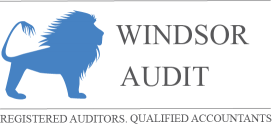
What is a Statutory Audit?
Statutory audits are legally required to review the accuracy of a company’s financial records. The purpose of a statutory audit is the same as the purpose of any other type of audit: to determine whether an organisation is providing a fair and accurate representation of its financial position by examining information such as bank balances, bookkeeping records, and financial transactions.
Do you need to complete a Statutory Audit?
Your company must have an audit if at any time in the financial year it’s been:
- A public company (unless it is dormant)
- A subsidiary company (unless it qualifies for an exception)
- An authorised insurance company or carrying out insurance market activity
- Involved in banking or issuing e-money
- A Markets in Financial Instruments Directive (MiFID) investment firm or an Undertakings for Collective Investment in Transferable Securities (UCITS) management company
- A corporate body and its shares have been traded on a regulated market in a European state
As seen above, not all businesses need an audit, but that does not mean you should not get one done. If you are a growing business or considering a sale/merger, a voluntary audit could help identify areas of risk, highlight the potential improvement in your business, and make you more appealing to investors.
Advantages of Statutory Audit
There are many advantages to having a statutory audit completed. It can offer the following benefits:
- Improves the trustworthiness of published financial statements
- Safeguards the management that they have performed their statutory duties appropriately
- Gives assurance to management that they have complied with non-statutory requirements, such as corporate governance requirements
- Provides insight on the efficacy of internal controls
In circumstances where internal controls assessed as frail or insufficient, the auditor can provide recommendations for improvement. This will help management in reducing risk and improving the performance of the company. For example, due to small company statutory exemption limits, an audit will boost the trustworthiness of published financial statements. This may be important for potential investors to the company. Potential investors may include banks, who insist on the company having an audit as a requirement for lending money.
Statutory Audit Procedure
There are many activities from your side which can help an audit run smoothly. It is recommended that all accounting staff are available during the time that our UK auditors are on your premises.
There are also a number of the principal documents that can be prepared and made available in advance of the audit. If the documents are all easily assessable, disturbance to your staff members during the audit will be reduced:
- All primary accounting records
- VAT returns and workings
- Wages records and P11D returns
- Aged debtors and creditors listing
- Year-end bank reconciliation and statements for the whole period for all bank accounts
- Diagram showing the structure and ownership of the company/group of companies
- Breakdown of all balance sheet amounts with invoices to evidence items (e.g. fixed asset additions, prepayments, and accruals)
- Stock reports
- All hire purchase and leasing agreements
- Copies of all meeting minutes held during the relevant period and details of any changes in share ownership
Why choose Windsor Audit?
Windsor Audit is an auditing company in the UK and provides the best professional audit services. Windsor Audit tries to ensure that the auditing process is straightforward and seamless for you. We build a time efficient and constructive relationship with you, as well as staying proactive in letting you know what we need and when. We plan our statutory audits to meet your compliance needs and review any areas of concern you may have.
We focus on offering a tailored and cost-effective auditing service which always takes risk and regulation into account. Every aspect of our service is concentrated on keeping you compliant with changing rules and professional standards, as well as helping you to achieve your business objectives. We are registered statutory auditors. Windsor Audit Limited is registered to carry out audit work in the UK by the Institute of Chartered Accountants in England & Wales (ICAEW). Details about our audit registration can be viewed at www.auditregister.org.uk under reference number C003506654.
For further information, please contact Daniel Mould (Director):

Daniel Mould
+44 (0)20 7183 9351
daniel.mould@windsoraudit.com
